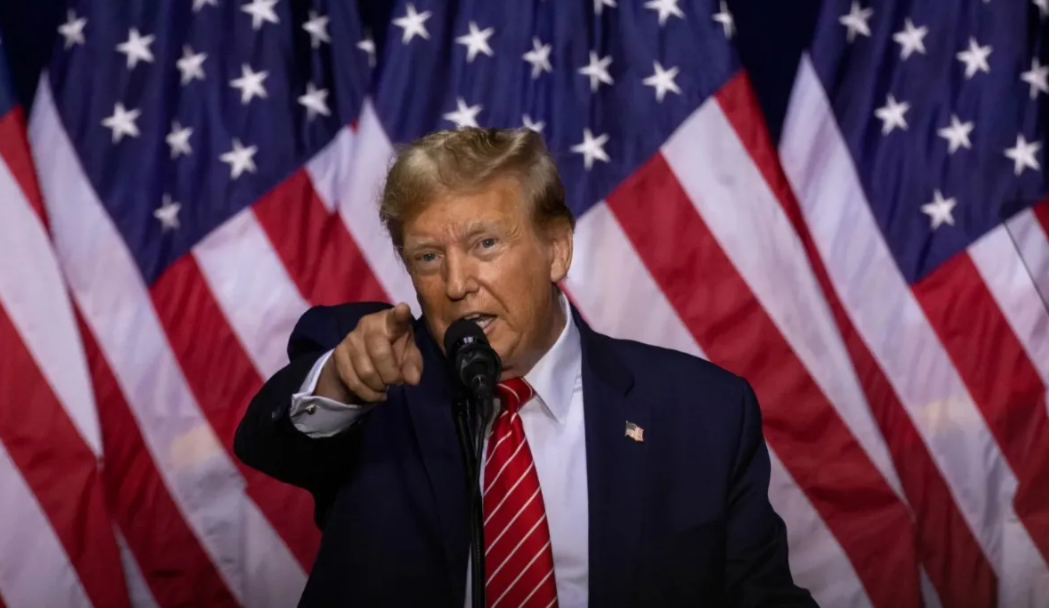With Trump likely to return to power for a second term, his approach to climate policy is poised to
impact global climate cooperation. Yet, with climate action now a cornerstone of – sensible policy
worldwide, the clean energy transition may continue its momentum despite the potential shifts.
Despite shifts in power across more than 60 nations that held national polls worldwide this year,
the U.S. election has raised the stakes for bilateral and global alliances.. climate policy will be
particularly pivotal, given its growing role in economic and trade policies, clean energy expansion,
supply chain decarbonisation, CBAM and the escalating impacts of climate impacts.
In 2017, the U.S. under Trump had announced its intent to exit the Paris Climate Agreement,
casting doubt on global climate efforts. His policies reshaped economic and trade policies and
rejigged global supply chains.
Despite this, India has remained committed to its climate goals, striving to build a less
carbon-intensive economy, while growing its GDP. And strong U.S. opposition to China aligns with
India’s position in the Indo-Pacific as it continues to be viewed across party lines as a
counterbalance to China’s growing influence. Even so, a change of guard at the helm in the U.S. will
likely reshape India’s equation with the U.S. on climate policy and in turn on its economic growth
plans. Climate change and technology transfer remain essential elements of U.S.-India
cooperation.
Economic Ties
With a bilateral trade valued at around $190 billion, economic ties remain a cornerstone for the
India-U.S. relationship. Harris was expected to prioritise continuity of initiatives started under
Biden when the U.S.’ Development Finance Corporation placed more emphasis on climate-friendly
investments in India, supporting projects like renewable energy infrastructure and green
technology development.
On the other hand, Trump has been known for his protectionist stance – he recently
criticised trade imbalances calling India a “big abuser” of trade agreements. And in June
2019, the U.S. revoked India’s Generalised System of Preferences (GSP) status, removing
duty-free benefits on certain Indian exports and raised concerns over high tariffs on
motorcycles and medical devices.
Yet, one of the biggest economic policy initiatives in India’s favour under the Trump
administration was the U.S.-India Strategic Energy Partnership (SEP), established in 2018.
This partnership expanded energy trade and investment between the two nations,
increasing private investments in India’s clean energy plans even though he de-prioritised
government backing. Under the last Trump administration, U.S.-based private equity firms,
such as Warburg Pincus and Goldman Sachs, invested in Indian renewable energy
companies.
Climate Finance
Under Trump, who has previously criticised climate finance mechanisms, such as the Green
Climate Fund, labelling them as wealth redistribution schemes unfavourable to the U.S.,
there may be a reluctance to allocate funds for international climate efforts, including those
in India. Going by the last experience, however, India may see some bilateral and private
sector investments into clean projects. For instance, in 2018, the U.S. Overseas Private
Investment Corporation (OPIC) committed $350 million to ReNew Power, one of India’s
largest renewable energy companies.
Under Harris won India could have expected more funding for its transition needs. In 2021,
Biden launched the U.S.-India Climate and Clean Energy Agenda 2030 Partnership, to
mobilise climate finance for India’s renewable energy and climate adaptation goals. Now it is
unclear if India can continue to expect the backing of DFC’s enhanced mandate that was
allowed under Biden on financing low-carbon projects, in addition to Quad Climate Finance
Initiatives under which the Biden administration worked with India, Japan, and Australia to
coordinate regional climate finance strategies to increase funding for climate resilience
projects in India and the Indo-Pacific.
While Trump’s return signal a U.S. retreat from funding obligations and reduced financial support,
yet other developed countries especially within the G7 that have historically been major emitters
cannot overlook their responsibility to urgently fulfill their share of climate funding.
This makes reaching an agreement at COP29 in Baku even more essential to secure financial
support for developing nations’ clean energy transition and resilience-building. Post-2025 climate
finance does not hinge only on the United States; countries such as Japan, Germany, the United
Kingdom, Canada, and New Zealand have historically led on contributions. Also, China, UAE, and
other countries have contributed through other forums. An ambitious NCQG agreement can
ensure that funding flows and is mobilised, even if the US contributions diminish.
Reactions from India
Dr Arunabha Ghosh, CEO of the Council on Energy, Environment and Water (CEEW)
“The proposed trade barriers will need careful navigation so that Indian industries, especially for
clean technologies, do not suffer. Currently, India exports 90 per cent of its solar modules to the US.
Over the next four years, India will need to be prepared and strategically nimble to deepen green
trade, co-develop clean tech supply chains, and accelerate its energy transition.
The US election results do not change the fact that India and the US will continue to be key strategic
partners. With Donald Trump in power, India can count on continued oil and gas supply to ensure its
developmental needs since the US is a net exporter of fuels now. Between 2017 and 2024, the US
became the fifth-largest liquified natural gas (LNG) and crude oil supplier to India.”
Manjeev Puri, Distinguished Fellow, TERI
“Climate Change is real and the need for global action and cooperation continues to be an
imperative of the highest order. While past experience hasn’t been encouraging, hope must remain
for the next Trump Presidency. We hope they will find ways to do things that are supportive of climate
action. Innovation and technologal progress is dear to the President elect. It is also critical for
climate action and offers opportunities for US leadership. US has been a leader on global issues and
needs to maintain this in the area of climate change, also to ensure that space is not vacated to be
occupied by others.”
Aarti Khosla, Director, Climate Trends
Trump’s actions on climate policy last time, and decision to withdraw from Paris agreement give no
confidence that he will give the right attention the climate emergency requires. Yet the world is
different from the last time he came to power. Climate impacts have ravaged every part of the world,
and climate change is much more visible as a determinant of global chaos.No government can afford
to ignore multilateralism to solve problems of global commons.
The COP in Baku is going to start under a very challenging political context, one in which US will have
a reduced mandate and no political will. It may lead to further lack of progress on important
elements like hiking cash for climate action, and may create more impediments than solutions on
contentious matters like trade given trumps protectionist stance.
But it also brings more pressure to deliver. An ambitious NCQG agreement at COP can ensure that
money flows and that money is mobilized, even if the contribution from the US reduces. Other global
leaders will be expected to rise to the climate challenge. The EU and China are moving forward
competitively. Nations like Brazil, India, and Kenya have also shown ambition which will continue.
Solar , EVs and many tech which were sunrise last time Trump came to power have now taken off and
there is no looking back for the clean energy revolution.
Labanya Jena, Sustainable Finance Specialist
“A cut down in public spending for climate action, or even termination of the inflation reduction act
that propelled low-carbon technologies development and adoption in the US can be expected. The
US’s pledge of $3 billion to the Green Climate Fund may also be reneged. The US Government’s
bilateral financial support to developing countries for climate actions could be curtailed significantly.
Banks and financial institutions can be warned by the Government not to advocate for climate
actions and may be forced to continue to provide capital to the fossil fuel industry.”
Harjeet Singh, Climate Activist and Global Engagement Director for the Fossil Fuel
Non-Proliferation Treaty Initiative
“Trump’s victory is a profound blow to global climate justice and an alarming escalation of climate
risk for the world’s most vulnerable communities. His push to ramp up fossil fuel production,
disregard for international agreements, and refusal to provide climate finance will deepen the crisis,
endangering lives and livelihoods—especially in regions least responsible for, yet most impacted by,
climate change.
“With COP29 talks starting in Baku next week and aiming to secure an ambitious new climate finance
goal, this news makes the already challenging path to consensus even steeper and more uncertain.
As the narrow window to prevent catastrophic climate breakdown closes, the world cannot afford for
its largest historical carbon emitter and top fossil fuel producer to shirk its responsibility. By stepping
back from climate commitments, Trump’s actions threaten to unravel trust in a global system
already strained by the indifference and inaction of wealthy nations.
“The U.S., as a nation, has an urgent duty to lead—not undermine—global efforts. It’s time for states,
the public, and companies committed to protecting the planet to intensify their domestic actions and
show true solidarity with the developing world confronting the climate crisis.”






